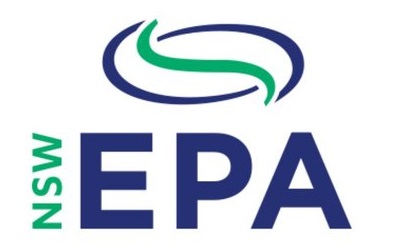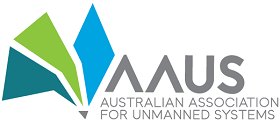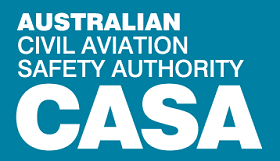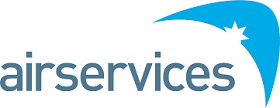Overview
 Aeronautical Radio Operator's Certificate (AROC)
Aeronautical Radio Operator's Certificate (AROC)
The Aeronautical Radio Operator Certificate (AROC) Course is designed to provide Aviation radiotelephone knowledge, techniques and qualifications for pilots, non-pilot flight-crew such as Remote Pilot’s, Helicopter Hoist Operator Aircrew, Rescue Swimmers / Loadmasters, Emergency Services personnel members including Police, Fire, Ambulance and Helicopter Landing Officers / Landing Zone Coordinators within emergency services along with Airports and Airlines Ground Crew.
Holding an Aeronautical Radio Operator's Certificate (AROC) will enable Remote Pilots to fly a drone in controlled airspace if they also have the additional CASA approvals to do so. An AROC allows Remote Pilots to broadcast over VHF radio aviation frequencies.
This course enables graduates to communicate via two-way radio during their normal course of duties and tasks within the aviation environment.
Successful graduates of the program are awarded and issued a CASA Aeronautical Radio Operator Certificate (AROC) which can be used to demonstrate competency in other regions worldwide to attain a local Radio Operator License such as, with the Federal Communications Commission (FCC) within the United States.
(Participants in other countries should check with their local regulatory authorities to ensure the CASA approval is sufficient for local use).
 How much does it cost? How long does it take?
How much does it cost? How long does it take?
The course is typically completed within one day with the majority of the course is completed online.
There is also a Face to Face requirement for the practical element.
Click here to view course prices and Packages
 AROC Course Availability & Schedule
AROC Course Availability & Schedule
This course is delivered in a combination of online and face-to-face practical training.
Learners will receive expert tuition on how to communicate using an Aeronautical Radio, protocols and best practice for using an Aeronautical Radio, Regulations and Requirements for AROC operators.
Aeronautical Radio Operator's Certificate (AROC) courses run several times each month, please visit our AROC Courses page for a list of upcoming courses.
 AROC Course Prerequisites
AROC Course Prerequisites
In order to undertake this course online, the applicant MUST have a computer with a webcam fitted, or Laptop, iPad or Smartphone. The webcam is used to authenticate the identity of the applicant. A snapshot is taken at the start of the course and kept on an electronic file. At random times throughout the course several more snapshots will be taken to ensure it is the same person doing the course.
Students will need to gain or hold an Aviation Reference Number (ARN) with CASA as part of the license requirement either before undertaking the course or during to enable submission of the application and results of assessment.
A pre-requisite for this course is General English Language Proficiency that can be evidenced by producing documentation such as an Australian High School Certificate or similar documentation, your instructor will guide you on the documentation required.
Your instructor will also conduct a short verbal interview in order to confirm that you meet the necessary standard of English Language Proficiency (ELP) required for this course.
Benefits Of Studying This Course

Holding an Aeronautical Radio Operator's Certificate (AROC) is essential if you want to operate remotely piloted aircraft outside of Standard Operating Conditions.
A condition of approvals from the Civil Aviation Safety Authority (CASA) typically includes a requirement to make regular broadcasts on an specified frequency to ensure the safety of you, your crew and other airspace users.
Individuals seeking to develop their career in the Remote Aviation industry are strongly advised to obtain an Aeronautical Radio Operator's Certificate as part of their career plan.
Employment Opportunities
![]()
Our well trained, licenced Remote Pilots are now working across many industries.
Several considerations are important before commencing your journey as a Remote Pilot, firstly, what existing skills and capabilities do you currently have? If, for example, you worked hands on (on the tools) and gained a technical capability, why not use this valuable experience to help build your future career.
Alternatively, if you are pivoting your career and want to move in a different direction, how will you build contacts in your new area? What other things should you be considering such as; do you want to build a business with many pilots working for you or do you prefer to work alone?
What market sectors are you going to focus on? Are there government incentives available to help you get started? In Victoria, for example, the ASBAS Small Business Scheme helped Suas Rov up our website and marketing plans, they also gave us access to mentors and industry experts who helped us work out our business plan and how to mobilise our company, similar schemes are in operation in most states.
Do your homework, check out who is employing (Seek or Indeed are great for checking out current job opportunities), what are they looking for? Do you have some of the skills they need? its not all about the licence but it is a great place to start!
About The Sector
![]()
The Remote Aviation Industry is one of the fastest growing industries worldwide. In Australia, we have witnessed exponential growth every year with many companies now struggling to attract and retain experienced and qualified Remote Pilots.
In 2018 we hardly ever saw a role advertised for a Chief Remote Pilot, this year, we have seen almost a dozen Chief Remote Pilot Roles with Salaries well over the $200K mark for suitably qualified individuals.
Remote Pilots must consider the other skills and practical expertise they will bring to the market in order to make them stand out, have your technical skills or IT experience? If not, is there a course available to build these micro qualifications? Remember, in a rapidly growing industry, the needs and expectations of employers and clients will also continue to grow and develop, so it is key to keep on top of industry developments and changes to regulations.
At Suas Rov we see education as a life-long journey, we are proud of our great record and as both a CASA Certified Training Organisation and a Registered Training Organisation (RTO), we are the perfect partner to help you build your skills and grow your brand in this industry.
Past students now work across many industries including:
- First Responders
- Fire Fighters
- Health Care Professionals
- Agriculture, Forestry and Viticulture
- Environmental Management, Land Management and Wildlife Protection
- Surf Life Saving and Shark Spotting and Photography
- Coastal Management, Marine and Fisheries, Water Resource Management
- Data Acquisition, Analytics and Data Science
- Technology and Mechatronics
- Surveying, Construction, Architecture and Asset Management
- Resources Management, Mining, Health and Safety and Defence
- Remote Communities, Protection of endangered and sensitive sites & Tourism
With new applications and use cases being developed constantly, the opportunities are almost limitless!
Curriculum
![]()
This Course provides the theory lessons necessary for learners to successfully complete the Aeronautical Radio Operator's Certificate Examination.
The AROC Examination is separate to the Remote Pilot's Licence (RePL) Theory Examination and Practical Assessments and consists of 30 Multiple Choice Questions. Learners have approximately 45 minutes to complete the AROC examination.
A prerequisite for this course is General English Language Proficiency (GELP) that can be evidenced by producing documentation such as an Australian High School Certificate or similar documentation, your instructor will guide you on the documentation required.
Your instructor will also conduct a short verbal interview in order to confirm that you meet the necessary standard of English language required for this course.
How are courses delivered?
Courses are delivered on-line via Zoom (Virtual) and typically take about 4 hours to complete (including examination).
There is also a practical face-to-face element, this is typically completed as part of your Remote Pilot Licence practical training day.
This course is relevant to all operating airports overseen specifically by FAA, CASA and EASA / JAA regulatory requirements in relation to aircraft radio operations and licensing.
How do I access the course?
You can choose which date suit you best for your AROC course, register your details and pay via our website.
Alternatively, please send an email to admin@suasrov.com.au and we can send you an invoice. Once Suas Rov are in receipt of payment, we can manually enrol you onto the date you have chosen to attend the online tutorials for your Aeronautical Radio Operators Certificate (AROC).
A link for the online Zoom Tutorial will be emailed to you closer to the date of your AROC Course.
Course Units
![]()
This Certification is applicable to Aeronautical Radio Operators, operating within Australian aviation environments.
It provides the skills and knowledge required to operate an aeronautical radio, in compliance with relevant regulatory requirements of the Civil Aviation Safety Authority (CASA) and national operating standards.
Course Duration
![]()
The Aeronautical Radio Operator's Certificate (AROC) is a one day course (including the theory examination).
Learning Materials
![]()
All learning materials, access to our Learning Management System (LMS), Android and Apple Applications 24/7 Chatbot and equipment is provided by Suas Rov.
Assessment Types
 Theory Examination
Theory Examination
In order to attain your Aeronautical Radio Operators Certificate (AROC) you will have to successfully complete a theory examination under the supervision of your instructor.
The exam consists of 30 multiple choice questions. This is a closed book examination.
You will have an opportunity to review practice quizzes and examinations and to discuss any queries you may have, with your instructor, in advance of sitting your exam.
Practical Assessment
In addition to the theory examination, students must also complete a prescribed series of sample radio calls, these recordings are retained by your instructor.
Certification / Recognition
![]()
On successful completion of the course you will be awarded your CASA certified Aeronautical Radio Operator's Certificate (AROC)
Requirements
Learner Requirements
![]()
Learners must have General English Language Proficiency (GELP), this can be evidenced by providing a statutory declaration or a copy of your Australian High School Certificate, or a letter from your employer.
Your Instructor will guide you on how best to demonstrate your language competence.
Aviation Reference Number (ARN)
![]()
It is a prerequisite for students wishing to complete this course that they hold an Aviation Reference Number.
Aviation Reference Number (ARN):
CASA requires all licensed personnel to hold an Aviation Reference Number (ARN) . This is how CASA uniquely identifies you and records your training and license credentials, you must hold an ARN in order to sit your remote pilot's license exam. There are two types of ARN, an individual ARN and a Company ARN. If you are considering Commercial Operations we would recommend that you get both, then you can add it to your company in the future.
Link to CASA website ARN request form (online): CASA ARN Application
Recognition of Prior Learning (RPL)
![]()
Recognition of Prior Learning (RPL) is not available for this course.
Funding and Fees
Course Fees
![]()
The course fees can be found on our Course Pricing page
Why Suas Rov
Further Education and Career Pathways
![]()
When you complete this course, you may want to enhance your skills and knowledge and your job promotion prospects by going on to study:
- AVI30419 Certificate III in Aviation (Remote Pilot) - Learn more here
- BVLOS (OCTA) Two day course to prepare for the Beyond Visual Line of Sight Exam - Learn more here
- CASA Remote Pilot's Licence (25KG Upgrade) - Learn more here
- Remote Operator's Certificate (ReOC) - Learn more here
University Pathways
















